Go offline with the Player FM app!
The World’s Best Memory Courses For Memory Training in 2024
Manage episode 442564641 series 3235856
 Ever come across memory courses or even schools that promise an instant memory boost?
Ever come across memory courses or even schools that promise an instant memory boost?
Not so fast! Before you sign up to any of them, please read this entire page.
Quite frankly, you’ll be losing money if you go after (tempting) memory tricks like how to develop a “photographic” memory. Unfortunately, even in our modern era, some people still make such dubious offers.
The truth is, you’ll end up not using your memory power to the fullest potential with teaching like that.
The question is: How do you tell the best memory training schools and courses apart from the rest?
In this article, I’ll reveal the world’s best schools and courses for memory training. This includes a powerful, magnetic way to supercharge your memory so you can learn everything important faster and recall it easily, anytime.
Why should you care what I have to say about memory courses? For one thing, I’ve been running one of the biggest online schools of memory since 2012. I’ve got one of the most viewed TEDx Talks about memory ever recorded and I’ve written over a dozen books on different ways to learn faster and remember more.
But enough about me. I want to focus on your goals and the kinds of memory courses that will serve you best. With that in mind, here’s what I’ll cover in this post:
- What Makes Memory Courses Beneficial & How Can You Tell?
- Best Schools and Courses For Memory Training
What Makes Memory Courses Beneficial & How Can You Tell?
Memory courses are important because they can train you to remember and recall information, as well as keep your brain sharp.
In order to do so, however, they need to satisfying the points I cover in my Memory Training Consumer Awareness Guide (PDF).
Before you join any course, I suggest you read it. Then get in touch with the creators or organizers of memory courses you’re interested in and ask them the following questions:
- What makes you a specialist in the memory skill for which I need training?
- What type of memory methods do you use personally?
- What training do you have as a memory specialist?
- What specifically can I can achieve by working with your product?
- How often should I use your training to get the optimal results?
- Do you teach motivation skills?
- Do you teach study skills and other skills related to memory?
- Do you teach advanced methods for overcoming procrastination?
- Do you teach goal setting?
- Are personal coaching sessions available, and if so, are they recorded?
- What degrees do you hold?
- Do you have any publications that demonstrate your expertise?
- What knowledge of the other memory books, teachers and courses do you have and how do you assess
them? - What knowledge of the available memory science do you have and how did you acquire it?

Even a memory champion needs training to be in top form during a contest, so these questions apply to them too.
Ultimately, anybody can learn memory strategies to remember and recall information, or even learn languages like these memory champions. A 2017 study revealed that practicing mnemonic techniques can actually alter connections in your brain to make it resemble that of a memory champion.
Now, you may not want to become a memory champion. But, there are many other everyday benefits of memory or brain training. For example:
- Memory training helps you retain and store memories a lot quicker than you generally would. So, you’ll no longer face memory problems like forgetting your car keys, or the crucial formula for your maths exam.
- It stimulates the neurons in your brain — making it much simpler for your brain to form connections when exposed to new information, say, in a dull history class.
- It improves your problem-solving skill, making it easier for you to respond to situations aptly. For example, working memory training has been proven to help children who struggle with math problem solving.
- Memory training helps filter out information selectively instead of memorizing everything you see, read, or hear.
- It fires up your overall memory and intelligence. This includes your working memory skills, short- and long-term memory, executive function, fluid intelligence, and creativity.
Does The Course Address Different Types Of Memory?
Let’s take working memory as a further example.
Poor working memory has been found to be a common feature of educational underachievement.
It is also one of the characteristics of people with Down Syndrome, those with dyslexia or learning disabilities, and those who’ve suffered a brain injury.
How does memory training improve your overall working memory performance?
Memory training improves both of the working memory subsystems — the “sketchpad” that stores visual and spatial information, and the phonological loop that is the verbal working memory. This means you won’t have to worry about losing focus on your studies or research due to distractions.
Consistent memorization training or memory training exercises will help you fight your fears of Alzheimer’s Disease and Dementia. A 2010 study showed that it improves brain function in older adults who have started displaying signs of dementia.
What should you look for in a memory course or school?
Look for training that contains focused approaches, without the fluff that seems to fill many memory performance books and video courses.
At the bare minimum, they should offer you plenty of systematic worksheets, working memory tasks, visualization exercises, memory exercises, and detailed guides on each technique — all explained in simple terms you can understand.
Some of the best memory courses and schools inspire you by covering brain training techniques from around the world. You’ll come across exciting insights on:
- How Chinese mnemonist Wang Feng memorizes a deck of cards
- How Matteo Ricci’s memory palace helped him to pass China’s civil service exam
- The Mnemonic Major System used by French scholar Aimé Paris
- How Mongolia uses mental athletics as a nation-building exercise
- And more
So, what memory courses and schools can you trust to give you the best results?
Best Schools and Memory Courses For Memory Training in 2024
I’ve handpicked some of the best memory schools and courses that will sharpen your memory power.
Although I will not be uncritical of some of them, let’s look at each of them in detail.
Magnetic Memory Method Masterclass
The Magnetic Memory Method Masterclass was launched… by yours truly! I’ve taught thousands of students and worked as a memory coach and adviser to top ESL instructors and language school administrators worldwide.
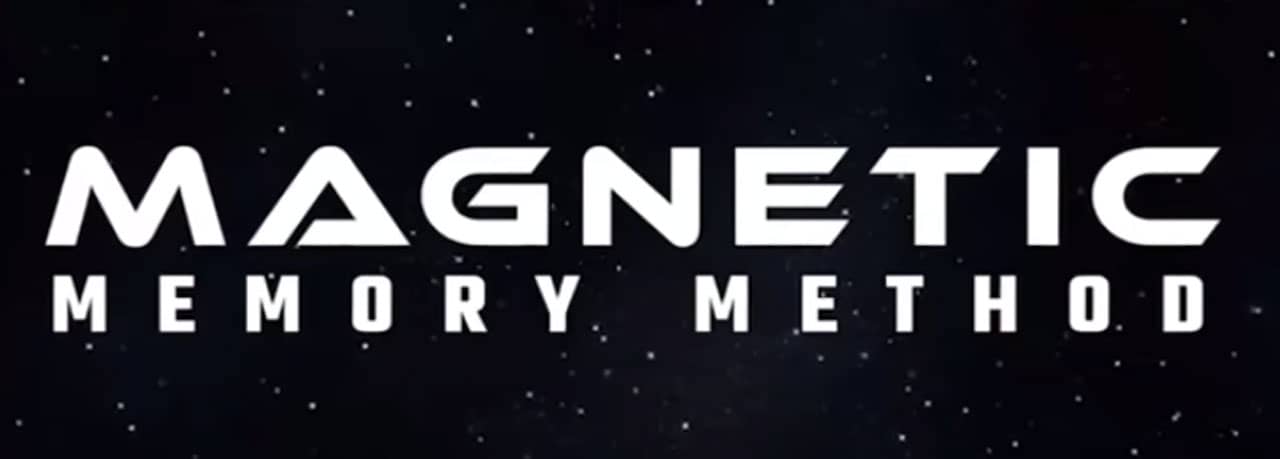
The Magnetic Memory Method is an incredibly powerful technique that will help you improve your memory in as little as eight days.
It’s a practical and fun approach to using Memory Palaces, mnemonics, and other memorization techniques to store and retrieve all kinds of information you want to remember later.
In addition to giving you many Memory Palace examples, this program helps you easily learn a foreign language, memorize names and faces, speeches, and specialized terminology from professional fields like law.
How does a Memory Palace work?
Memory Palace is a powerful mnemonic technique that was used by the Greeks, and by geniuses like Hannibal Lecter and Sherlock Holmes.
It is based on associating information to real locations that are familiar to you — your home, school, office, a mall, etc. You walk through the place in your head, and associate memories with different parts of that location.
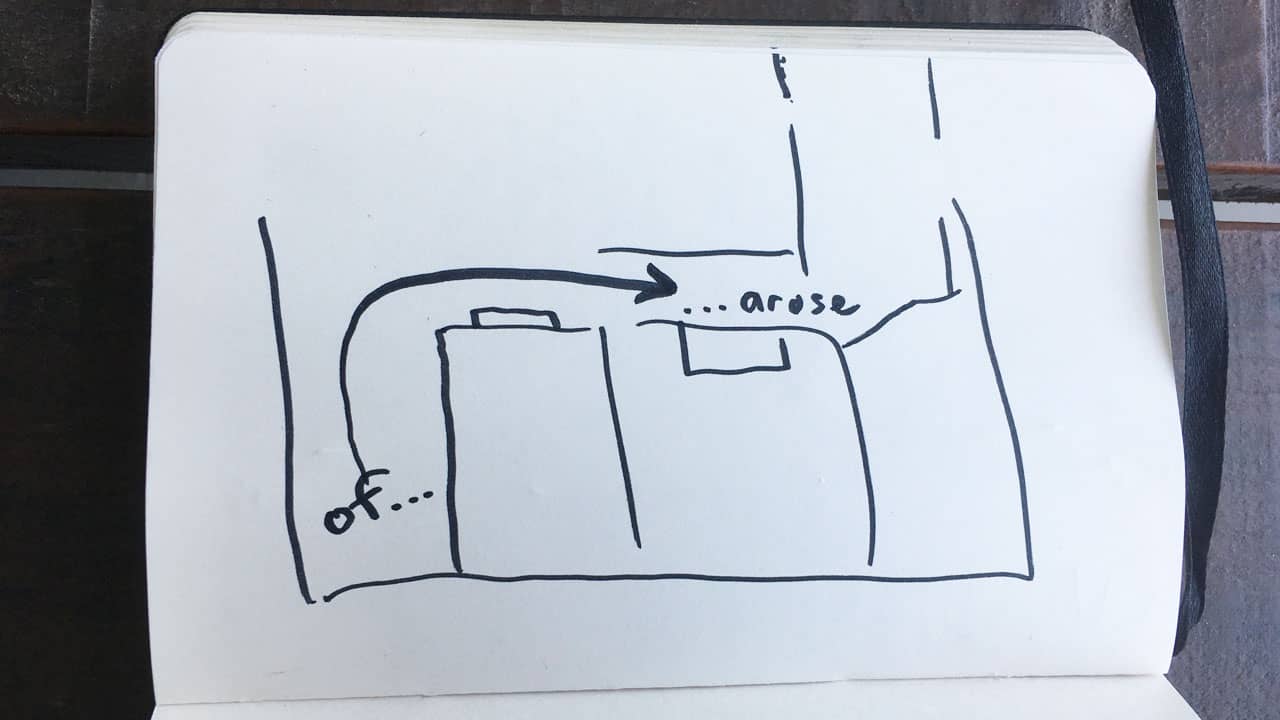
For example, if you were to associate the room you’re in with names of your neighbors, you’d store names starting with A on the drawer, those with B on the ceiling, and so on. You could associate vivid visual imagery with these names, helping aid your visual memory.
When you need to remember something, simply go back to your Memory Palace and look it up.
When you build memory palaces, you unlock your spatial memory and visual working memory. This provides a foundation for working with your semantic, episodic, autobiographical, procedural, and other types of memory.
Combined with Recall Rehearsal, this process lets you move information from short-term memory into long-term memory quicker, and with reliable permanence. The more you do retrieval practice (conscious recall), the more you reconstruct the memory and encode it deeper in your brain.
What’s more?
All other memory techniques can be used inside Memory Palaces (but not the other way around). This maximizes the power of the loci method and combines well with the pegword method.
Mongolian Intellectual Academy
The Mongolian Intellectual Academy was founded by Khandsuren Khatanbaatar, who came across competitive memorization while studying law in Turkey.
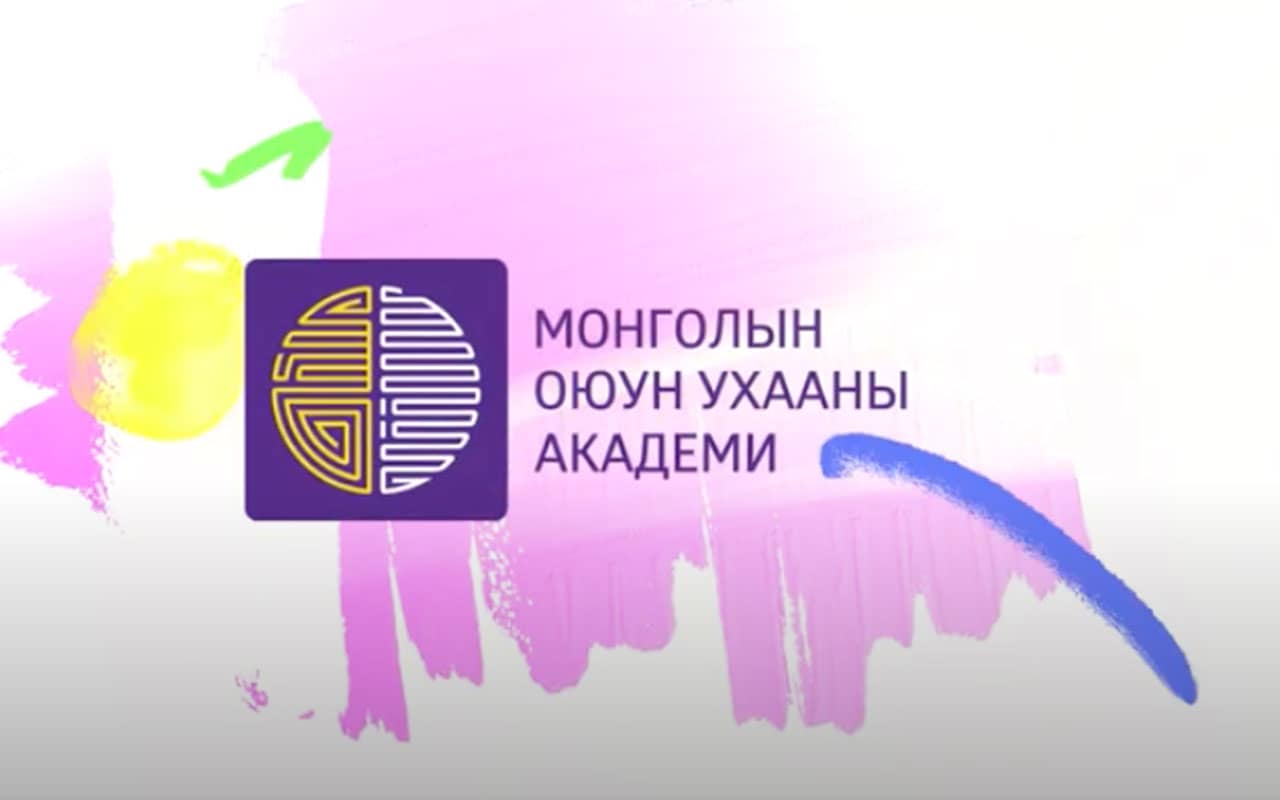
His interest soon turned into an obsession. Later, he got trained under Melik Duyar – the co-founder of the Memoriad games – who the Turkish media refers to as “the man who forgot to forget.”
Khatanbaatar returned to Mongolia to start the Mongolian Intellectual Academy. The institute is now known to test the limits of students with training and exercises like reading at 1,500 words per minute, memorizing a deck of cards in 20 seconds, or multiplying seven-digit numbers without a calculator.
The academy focuses on improving the overall brain function and memory of students. They rely on many exercises, including Rubik’s cube practice or a simple training task like speed stacking, to help students become memory experts.
In an interview, a student revealed they even have a kindergarten that teaches basic memory techniques and mental calculation.
Thanks to its unique approach to teaching, Mongolia reigns supreme in mental athletics competitions across the globe. There are as many as eight Mongolians in the list of top 10 junior competitors for mental athletics. In the Asia Championship 2019, Mongolia’s memory athlete team won 67 medals out of 90.
Durrington Research School
The Durrington Research School in the UK is part of the Research Schools Network. Their cognitive training courses follow a holistic approach and cover everything about memorizing, retention, and teaching strategies.

Durrington’s program on improving memory and metacognition explores the research-based evidence behind memory training and how to make it useful in a classroom.
It covers:
- Teaching methods that can improve memory recall
- Strategies to enhance the depth and scope of student knowledge through better curriculum planning
- Effective revision strategies
- Techniques to prepare students for content-rich exams
- Practical recommendations to make metacognition and self-regulated learning useful for teachers
Although their live trainings don’t take place often that I can find, when they are available, they aim to design lessons, tasks, and policies to help students retain knowledge and develop their metacognitive processes. This is especially useful for primary and secondary teachers.
Brain Academy
The Brain Academy by Gregory Caremans has several courses that are focused on developing memory and learning. You’ll also find plenty of videos, blog posts, and insights on how your brain works.
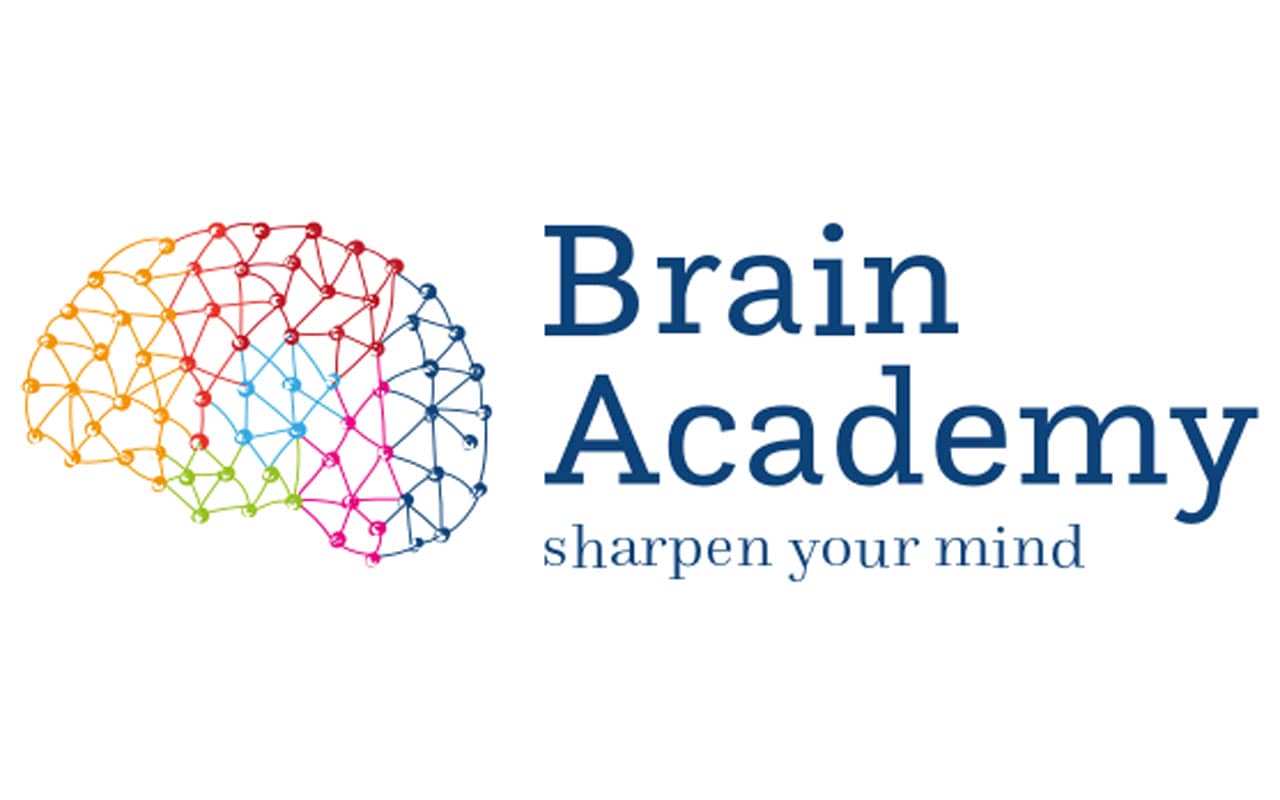
The Ultimate Guide To Memory And Learning Skill course dives into how your memory works and evolves over your lifetime. It also shows you how to stimulate your brain as you age — through childhood, adolescence, adulthood, and old age. The lectures include theories on memory, memory exercises, and plenty of tips.
There are other courses on:
- A step-by-step guide to explore your brain
- An introduction to cognitive neuroscience
- Strategies to improve your focus and attention
- Neuroplasticity and how to rewire your brain
- How to stimulate your neurons
- Neuroscience for parents
Finally, let’s look at a few other options.
Other Courses
Here are a few more that are definitely worth a mention:
Cogmed Working Memory Training
The Cogmed Working Memory Training was designed by cognitive neuroscience experts and psychologists from the Karolinska Institute, Stockholm.
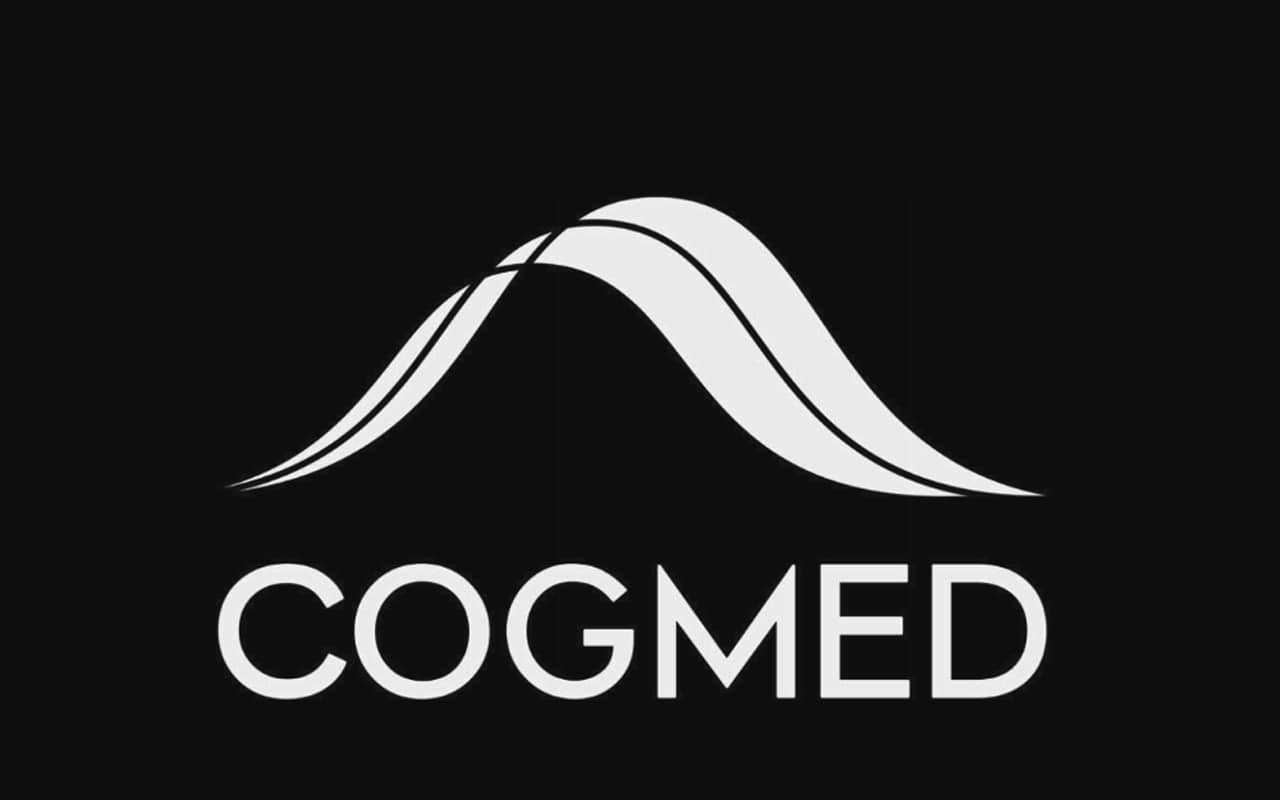
This working memory training is a software-based intervention that uses visuospatial and verbal tasks to challenge your working memory capacity.
You get a training protocol specific to your requirements and tackle one training task at a time on a rotating schedule. The working memory task adapts to your capacity level in real-time, according to the working memory and neuroplastic changes that may occur over time.
The training that lasts 5-10 weeks also contains working memory exercises put together by leading neuroscientists and psychologists. You can view everything on this Cogmed training online, and it gets monitored and analyzed by a coach.
However, as Dr. Christine Till has advised, substantial results from this program comes only when you work with a coach. You can also wind up with state and context dependent effects if you’re training solely with software. In other words, your memory might be better inside the app environment. But that doesn’t mean it will be any better as you navigate the world.
Pmemory
Pmemory was an online course developed by Ruslan Mescerjakov that promised to help you memorize 60 times more and learn 10 times faster.

The course consisted of 60 lessons each with exercises that were broadly divided into:
- Basic training on memory exercises with details on memory techniques
- Learning how to memorize 25 types of information, including telephone numbers, names, and formulas, and how to retrieve them selectively from your memory
- Memorization of foreign words and phrases
- Memorizing books and complicated texts
- Memorizing codes and passwords
Many people have asked me about why this course disappeared from the Internet. I don’t know, but I did take it many years ago. The training was robust, but I found that it included too many fixed rules that don’t reflect the mnemonic flexibility needed for big learning goals, like mastering a language.
Everest Memory Masterclass
A relatively new entry is the Everest Memory Masterclass by USA Memory Champion Nelson Dellis.
Since I have a guest session in this program, my memory biases naturally make me partial to it.
It’s definitely one of the better options out there because Nelson is not only a memory champion. He applies memory techniques to a variety of goals, such as language learning. Frankly, if the memory expert you’re choosing doesn’t have at least basic bilingualism in at least one other language, you might want to look further afield.
The good news is that Nelson does, and like myself, he’s a highly accomplished university professor too.
Ron White’s Black Belt Memory
I’m a big fan of Ron White’s Black Belt Memory course.
Not only do I really appreciate his efforts to give openly on his YouTube channel. He also completes impressive memory demonstrations, like memorizing the names of fallen soldiers.
One of the strongest aspects of his course involve his approach to memorizing numbers. He shows you how you can link them to your body. This approach effectively lets you use your own body as a Memory Palace and is very fun to use.
Mark Channon’s Memory School
As a recent entry, Mark Channon‘s Memory School is worth a look.
I’ve only gone through a bit of it, but it’s great so far. As a Grandmaster of Memory and author of several memory training books, Mark knows his stuff.
He’s also a professional coach. This qualification brings a special character to his memory teaching because he really understands motivation and goal-setting.
Anastasia Woolmer’s Live Memory Training & Coaching
Anastasia is an Australian memory champion who offers live courses and individual coaching.
As one of my favorite podcast guests, she knows a lot about memorizing choreography. She’s a dancer and martial artists, and these experiences bring a lot to her memory instruction.
She also takes on interesting goals, such as memorizing an entire dictionary. I recommend her highly.
Do Memory Courses Work?
The answer to this question depends on what you mean by “work.”
Technically, no. Memory courses educate you in a specific way.
In order to get results, you need to put the memory techniques they teach into action. In other words, you put in the work. The course is just there to inform, and to a certain extent guide you.
A lot of people struggle with the self-study requirement and that can be for a lot of reasons ranging from discipline problems to brain fog. If that’s you, you may need to take a step back first and:
- Explore memory friendly foods and herbs that can help restore basic memory function
- Address certain issues, such as stroke recovery or Alzheimer’s
- Learn to schedule your time, perhaps with some Atomic Habits
- Complete the memory course you choose more strategically
At the end of the day, it’s either health, scheduling or incomplete understanding that prevents people from benefitting from memory courses. Your understanding will always be incomplete without taking action, so please keep that in mind.
Another possibility is that you might just not respond well to courses as a learning format. You might benefit more from memory improvement books. Many people learn better that way, though you may still need to address underlying health and scheduling issues all the same.
Key point: Success with memory improvement courses isn’t about the medium. It’s about what you do with the lessons. Implementation is the key.
Can Memory Skills Be Trained?
Absolutely, yes.
We have countless scientific evidence that this is possible both for memory athletes and learners. To take one recent example, Dr. David Reser and Dr. Tyson Yunkaporta conducted a study with medical students. As the research revealed, students using the ancient art of memory learned faster and retained more than the control group.
Success with memory techniques comes from a combination of:
- Learning the techniques
- Practicing them
- Having a learning goal for applying the techniques
- Analysing your deliberate practice to look for areas to improve
It’s really that simple.
Power Up Your Brain the Magnetic Way!
It’s essential to sharpen your memory and brainpower, especially as you age. Memory courses and schools are an excellent way to help you with that. But remember, stay clear from those who promise tricky 30-minute or 1-hour memory transformations!
For the most effective memory training that lead to an interesting life, try building Memory Palaces using the Magnetic Memory Method. It will help you remember and recall all that you need, when and where you need it.
Sign up for your free training today:
The post The World’s Best Memory Courses For Memory Training in 2024 appeared first on Magnetic Memory Method - How to Memorize With A Memory Palace.
20 episodes
The World’s Best Memory Courses For Memory Training in 2024
Magnetic Memory Method – How to Memorize With A Memory Palace
Manage episode 442564641 series 3235856
 Ever come across memory courses or even schools that promise an instant memory boost?
Ever come across memory courses or even schools that promise an instant memory boost?
Not so fast! Before you sign up to any of them, please read this entire page.
Quite frankly, you’ll be losing money if you go after (tempting) memory tricks like how to develop a “photographic” memory. Unfortunately, even in our modern era, some people still make such dubious offers.
The truth is, you’ll end up not using your memory power to the fullest potential with teaching like that.
The question is: How do you tell the best memory training schools and courses apart from the rest?
In this article, I’ll reveal the world’s best schools and courses for memory training. This includes a powerful, magnetic way to supercharge your memory so you can learn everything important faster and recall it easily, anytime.
Why should you care what I have to say about memory courses? For one thing, I’ve been running one of the biggest online schools of memory since 2012. I’ve got one of the most viewed TEDx Talks about memory ever recorded and I’ve written over a dozen books on different ways to learn faster and remember more.
But enough about me. I want to focus on your goals and the kinds of memory courses that will serve you best. With that in mind, here’s what I’ll cover in this post:
- What Makes Memory Courses Beneficial & How Can You Tell?
- Best Schools and Courses For Memory Training
What Makes Memory Courses Beneficial & How Can You Tell?
Memory courses are important because they can train you to remember and recall information, as well as keep your brain sharp.
In order to do so, however, they need to satisfying the points I cover in my Memory Training Consumer Awareness Guide (PDF).
Before you join any course, I suggest you read it. Then get in touch with the creators or organizers of memory courses you’re interested in and ask them the following questions:
- What makes you a specialist in the memory skill for which I need training?
- What type of memory methods do you use personally?
- What training do you have as a memory specialist?
- What specifically can I can achieve by working with your product?
- How often should I use your training to get the optimal results?
- Do you teach motivation skills?
- Do you teach study skills and other skills related to memory?
- Do you teach advanced methods for overcoming procrastination?
- Do you teach goal setting?
- Are personal coaching sessions available, and if so, are they recorded?
- What degrees do you hold?
- Do you have any publications that demonstrate your expertise?
- What knowledge of the other memory books, teachers and courses do you have and how do you assess
them? - What knowledge of the available memory science do you have and how did you acquire it?

Even a memory champion needs training to be in top form during a contest, so these questions apply to them too.
Ultimately, anybody can learn memory strategies to remember and recall information, or even learn languages like these memory champions. A 2017 study revealed that practicing mnemonic techniques can actually alter connections in your brain to make it resemble that of a memory champion.
Now, you may not want to become a memory champion. But, there are many other everyday benefits of memory or brain training. For example:
- Memory training helps you retain and store memories a lot quicker than you generally would. So, you’ll no longer face memory problems like forgetting your car keys, or the crucial formula for your maths exam.
- It stimulates the neurons in your brain — making it much simpler for your brain to form connections when exposed to new information, say, in a dull history class.
- It improves your problem-solving skill, making it easier for you to respond to situations aptly. For example, working memory training has been proven to help children who struggle with math problem solving.
- Memory training helps filter out information selectively instead of memorizing everything you see, read, or hear.
- It fires up your overall memory and intelligence. This includes your working memory skills, short- and long-term memory, executive function, fluid intelligence, and creativity.
Does The Course Address Different Types Of Memory?
Let’s take working memory as a further example.
Poor working memory has been found to be a common feature of educational underachievement.
It is also one of the characteristics of people with Down Syndrome, those with dyslexia or learning disabilities, and those who’ve suffered a brain injury.
How does memory training improve your overall working memory performance?
Memory training improves both of the working memory subsystems — the “sketchpad” that stores visual and spatial information, and the phonological loop that is the verbal working memory. This means you won’t have to worry about losing focus on your studies or research due to distractions.
Consistent memorization training or memory training exercises will help you fight your fears of Alzheimer’s Disease and Dementia. A 2010 study showed that it improves brain function in older adults who have started displaying signs of dementia.
What should you look for in a memory course or school?
Look for training that contains focused approaches, without the fluff that seems to fill many memory performance books and video courses.
At the bare minimum, they should offer you plenty of systematic worksheets, working memory tasks, visualization exercises, memory exercises, and detailed guides on each technique — all explained in simple terms you can understand.
Some of the best memory courses and schools inspire you by covering brain training techniques from around the world. You’ll come across exciting insights on:
- How Chinese mnemonist Wang Feng memorizes a deck of cards
- How Matteo Ricci’s memory palace helped him to pass China’s civil service exam
- The Mnemonic Major System used by French scholar Aimé Paris
- How Mongolia uses mental athletics as a nation-building exercise
- And more
So, what memory courses and schools can you trust to give you the best results?
Best Schools and Memory Courses For Memory Training in 2024
I’ve handpicked some of the best memory schools and courses that will sharpen your memory power.
Although I will not be uncritical of some of them, let’s look at each of them in detail.
Magnetic Memory Method Masterclass
The Magnetic Memory Method Masterclass was launched… by yours truly! I’ve taught thousands of students and worked as a memory coach and adviser to top ESL instructors and language school administrators worldwide.

The Magnetic Memory Method is an incredibly powerful technique that will help you improve your memory in as little as eight days.
It’s a practical and fun approach to using Memory Palaces, mnemonics, and other memorization techniques to store and retrieve all kinds of information you want to remember later.
In addition to giving you many Memory Palace examples, this program helps you easily learn a foreign language, memorize names and faces, speeches, and specialized terminology from professional fields like law.
How does a Memory Palace work?
Memory Palace is a powerful mnemonic technique that was used by the Greeks, and by geniuses like Hannibal Lecter and Sherlock Holmes.
It is based on associating information to real locations that are familiar to you — your home, school, office, a mall, etc. You walk through the place in your head, and associate memories with different parts of that location.

For example, if you were to associate the room you’re in with names of your neighbors, you’d store names starting with A on the drawer, those with B on the ceiling, and so on. You could associate vivid visual imagery with these names, helping aid your visual memory.
When you need to remember something, simply go back to your Memory Palace and look it up.
When you build memory palaces, you unlock your spatial memory and visual working memory. This provides a foundation for working with your semantic, episodic, autobiographical, procedural, and other types of memory.
Combined with Recall Rehearsal, this process lets you move information from short-term memory into long-term memory quicker, and with reliable permanence. The more you do retrieval practice (conscious recall), the more you reconstruct the memory and encode it deeper in your brain.
What’s more?
All other memory techniques can be used inside Memory Palaces (but not the other way around). This maximizes the power of the loci method and combines well with the pegword method.
Mongolian Intellectual Academy
The Mongolian Intellectual Academy was founded by Khandsuren Khatanbaatar, who came across competitive memorization while studying law in Turkey.

His interest soon turned into an obsession. Later, he got trained under Melik Duyar – the co-founder of the Memoriad games – who the Turkish media refers to as “the man who forgot to forget.”
Khatanbaatar returned to Mongolia to start the Mongolian Intellectual Academy. The institute is now known to test the limits of students with training and exercises like reading at 1,500 words per minute, memorizing a deck of cards in 20 seconds, or multiplying seven-digit numbers without a calculator.
The academy focuses on improving the overall brain function and memory of students. They rely on many exercises, including Rubik’s cube practice or a simple training task like speed stacking, to help students become memory experts.
In an interview, a student revealed they even have a kindergarten that teaches basic memory techniques and mental calculation.
Thanks to its unique approach to teaching, Mongolia reigns supreme in mental athletics competitions across the globe. There are as many as eight Mongolians in the list of top 10 junior competitors for mental athletics. In the Asia Championship 2019, Mongolia’s memory athlete team won 67 medals out of 90.
Durrington Research School
The Durrington Research School in the UK is part of the Research Schools Network. Their cognitive training courses follow a holistic approach and cover everything about memorizing, retention, and teaching strategies.

Durrington’s program on improving memory and metacognition explores the research-based evidence behind memory training and how to make it useful in a classroom.
It covers:
- Teaching methods that can improve memory recall
- Strategies to enhance the depth and scope of student knowledge through better curriculum planning
- Effective revision strategies
- Techniques to prepare students for content-rich exams
- Practical recommendations to make metacognition and self-regulated learning useful for teachers
Although their live trainings don’t take place often that I can find, when they are available, they aim to design lessons, tasks, and policies to help students retain knowledge and develop their metacognitive processes. This is especially useful for primary and secondary teachers.
Brain Academy
The Brain Academy by Gregory Caremans has several courses that are focused on developing memory and learning. You’ll also find plenty of videos, blog posts, and insights on how your brain works.

The Ultimate Guide To Memory And Learning Skill course dives into how your memory works and evolves over your lifetime. It also shows you how to stimulate your brain as you age — through childhood, adolescence, adulthood, and old age. The lectures include theories on memory, memory exercises, and plenty of tips.
There are other courses on:
- A step-by-step guide to explore your brain
- An introduction to cognitive neuroscience
- Strategies to improve your focus and attention
- Neuroplasticity and how to rewire your brain
- How to stimulate your neurons
- Neuroscience for parents
Finally, let’s look at a few other options.
Other Courses
Here are a few more that are definitely worth a mention:
Cogmed Working Memory Training
The Cogmed Working Memory Training was designed by cognitive neuroscience experts and psychologists from the Karolinska Institute, Stockholm.

This working memory training is a software-based intervention that uses visuospatial and verbal tasks to challenge your working memory capacity.
You get a training protocol specific to your requirements and tackle one training task at a time on a rotating schedule. The working memory task adapts to your capacity level in real-time, according to the working memory and neuroplastic changes that may occur over time.
The training that lasts 5-10 weeks also contains working memory exercises put together by leading neuroscientists and psychologists. You can view everything on this Cogmed training online, and it gets monitored and analyzed by a coach.
However, as Dr. Christine Till has advised, substantial results from this program comes only when you work with a coach. You can also wind up with state and context dependent effects if you’re training solely with software. In other words, your memory might be better inside the app environment. But that doesn’t mean it will be any better as you navigate the world.
Pmemory
Pmemory was an online course developed by Ruslan Mescerjakov that promised to help you memorize 60 times more and learn 10 times faster.

The course consisted of 60 lessons each with exercises that were broadly divided into:
- Basic training on memory exercises with details on memory techniques
- Learning how to memorize 25 types of information, including telephone numbers, names, and formulas, and how to retrieve them selectively from your memory
- Memorization of foreign words and phrases
- Memorizing books and complicated texts
- Memorizing codes and passwords
Many people have asked me about why this course disappeared from the Internet. I don’t know, but I did take it many years ago. The training was robust, but I found that it included too many fixed rules that don’t reflect the mnemonic flexibility needed for big learning goals, like mastering a language.
Everest Memory Masterclass
A relatively new entry is the Everest Memory Masterclass by USA Memory Champion Nelson Dellis.
Since I have a guest session in this program, my memory biases naturally make me partial to it.
It’s definitely one of the better options out there because Nelson is not only a memory champion. He applies memory techniques to a variety of goals, such as language learning. Frankly, if the memory expert you’re choosing doesn’t have at least basic bilingualism in at least one other language, you might want to look further afield.
The good news is that Nelson does, and like myself, he’s a highly accomplished university professor too.
Ron White’s Black Belt Memory
I’m a big fan of Ron White’s Black Belt Memory course.
Not only do I really appreciate his efforts to give openly on his YouTube channel. He also completes impressive memory demonstrations, like memorizing the names of fallen soldiers.
One of the strongest aspects of his course involve his approach to memorizing numbers. He shows you how you can link them to your body. This approach effectively lets you use your own body as a Memory Palace and is very fun to use.
Mark Channon’s Memory School
As a recent entry, Mark Channon‘s Memory School is worth a look.
I’ve only gone through a bit of it, but it’s great so far. As a Grandmaster of Memory and author of several memory training books, Mark knows his stuff.
He’s also a professional coach. This qualification brings a special character to his memory teaching because he really understands motivation and goal-setting.
Anastasia Woolmer’s Live Memory Training & Coaching
Anastasia is an Australian memory champion who offers live courses and individual coaching.
As one of my favorite podcast guests, she knows a lot about memorizing choreography. She’s a dancer and martial artists, and these experiences bring a lot to her memory instruction.
She also takes on interesting goals, such as memorizing an entire dictionary. I recommend her highly.
Do Memory Courses Work?
The answer to this question depends on what you mean by “work.”
Technically, no. Memory courses educate you in a specific way.
In order to get results, you need to put the memory techniques they teach into action. In other words, you put in the work. The course is just there to inform, and to a certain extent guide you.
A lot of people struggle with the self-study requirement and that can be for a lot of reasons ranging from discipline problems to brain fog. If that’s you, you may need to take a step back first and:
- Explore memory friendly foods and herbs that can help restore basic memory function
- Address certain issues, such as stroke recovery or Alzheimer’s
- Learn to schedule your time, perhaps with some Atomic Habits
- Complete the memory course you choose more strategically
At the end of the day, it’s either health, scheduling or incomplete understanding that prevents people from benefitting from memory courses. Your understanding will always be incomplete without taking action, so please keep that in mind.
Another possibility is that you might just not respond well to courses as a learning format. You might benefit more from memory improvement books. Many people learn better that way, though you may still need to address underlying health and scheduling issues all the same.
Key point: Success with memory improvement courses isn’t about the medium. It’s about what you do with the lessons. Implementation is the key.
Can Memory Skills Be Trained?
Absolutely, yes.
We have countless scientific evidence that this is possible both for memory athletes and learners. To take one recent example, Dr. David Reser and Dr. Tyson Yunkaporta conducted a study with medical students. As the research revealed, students using the ancient art of memory learned faster and retained more than the control group.
Success with memory techniques comes from a combination of:
- Learning the techniques
- Practicing them
- Having a learning goal for applying the techniques
- Analysing your deliberate practice to look for areas to improve
It’s really that simple.
Power Up Your Brain the Magnetic Way!
It’s essential to sharpen your memory and brainpower, especially as you age. Memory courses and schools are an excellent way to help you with that. But remember, stay clear from those who promise tricky 30-minute or 1-hour memory transformations!
For the most effective memory training that lead to an interesting life, try building Memory Palaces using the Magnetic Memory Method. It will help you remember and recall all that you need, when and where you need it.
Sign up for your free training today:
The post The World’s Best Memory Courses For Memory Training in 2024 appeared first on Magnetic Memory Method - How to Memorize With A Memory Palace.
20 episodes
All episodes
×Welcome to Player FM!
Player FM is scanning the web for high-quality podcasts for you to enjoy right now. It's the best podcast app and works on Android, iPhone, and the web. Signup to sync subscriptions across devices.





